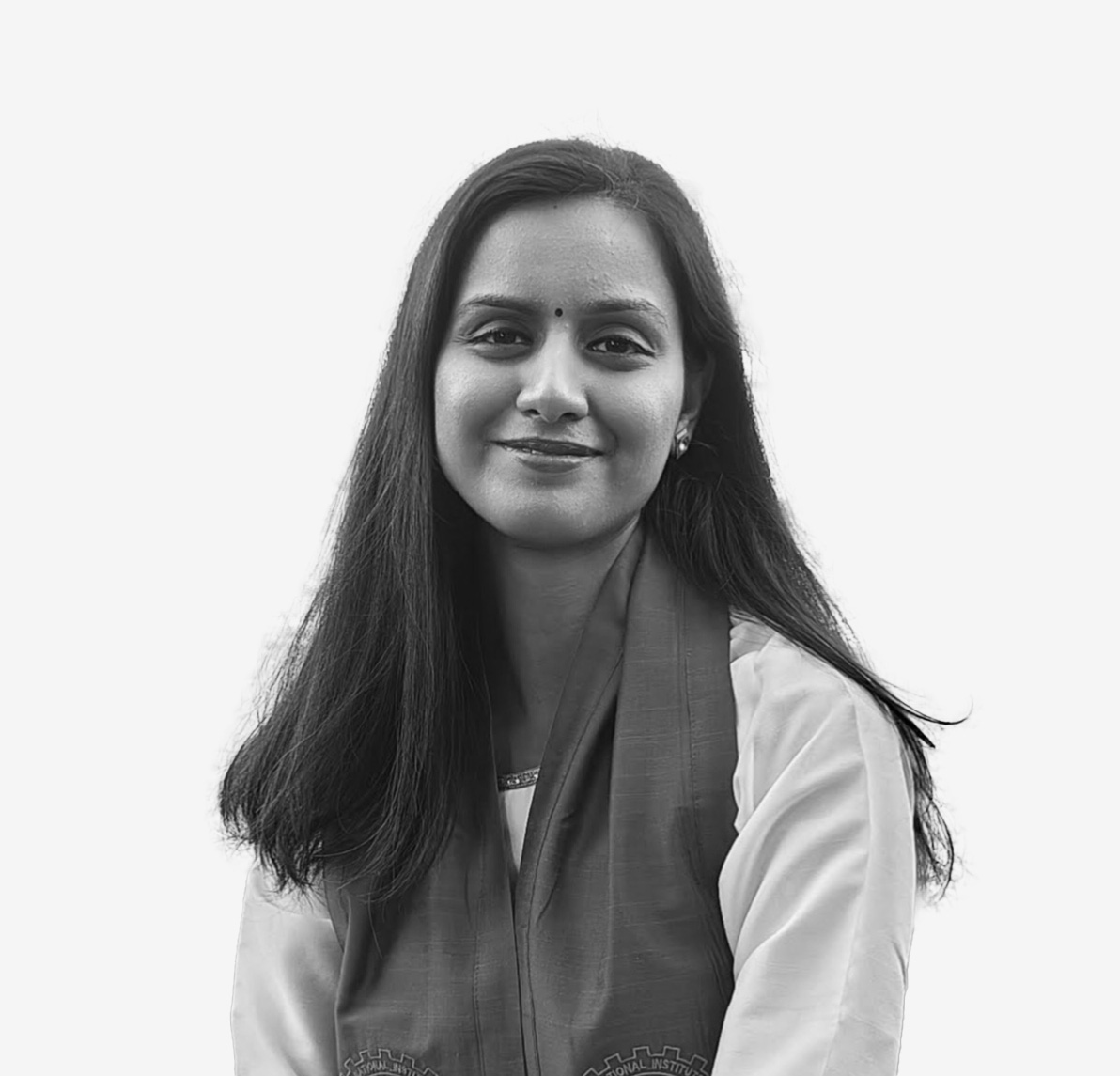Buy Health Insurance for 35 Years Old
At 35, you start looking at a balance between your career, family, and finances. Still, unfortunately, health problems can't wait for you to start your retirement at an appropriate age.
Even one medical emergency can wipe out decades of savings, which is why making wise choices around health insurance is critical. So, which is the best health insurance coverage — an individual plan, a family floater, or a critical illness policy rider?
Making a wise choice today will lead to peace of mind tomorrow, but we need to ask ourselves: are we making a wise choice based upon our needs, or are we hoping for the best? Let's explore the best health insurance options if you have turned 35.
I agree to the Terms & Conditions
Get Exclusive Porting Benefits

Buy Health Insurance, Up to 20% Discount
Port Existing Policy
9000+
Cashless Hospitals
2.5 Crore+
Lives Insured
4.5 Lacs+
Claims Settled

I'm 35, Married and Working — Do I Need Health Insurance?
At 35, married and working, health insurance is essential. Medical costs are rising, and one illness or accident can quickly drain your savings. A personal health plan ensures financial safety for you and your dependents, covering hospitalisation, treatments, and preventive care.
Relying only on employer insurance is risky due to limited coverage. Buying your own policy at this age also lowers premiums for life and gives stronger protection when needed.
Is Employer Provided Health Insurance Enough For Me?
No, employer insurance alone is usually not enough. It may help with small or moderate medical costs, but often fails to cover major treatments, job gaps, or personal needs. Here's why you should not depend on it fully:
- Low Coverage Amount: Most employer plans cover only ₹2–5 lakhs. Serious treatments like heart surgery or cancer can cost ₹10–20 lakhs, forcing you to pay the rest yourself.
- Limited Coverage: These plans often exclude outpatient care, maternity, advanced tests, and post-hospital treatment. A personal plan can include these.
- Job-Linked Protection: Once you quit, retire, or change jobs, the policy ends. You stay uninsured during the gap and face higher costs or rejection if you apply for a new policy later.
- No Customisation: Employer policies are standard. You can't increase coverage or add riders. Personal plans let you choose the coverage and benefits that match your needs.
- No Tax Benefit: Employer insurance doesn't qualify for Section 80D tax deductions. A personal plan can save up to ₹75,000 a year, depending on who you insure.
- Medical Inflation: Healthcare costs rise 12–15% yearly. A ₹5 lakh cover today won't be enough in a few years. Without your own policy, you risk being underinsured.
See more
See less
Relying solely on your employer’s group health insurance at 35 can leave you exposed to significant financial risks. Group policies often provide limited coverage, typically between ₹3 - 5 lakh, which is insufficient for major treatments like cardiac surgery or cancer care that can cost ₹10 - 20 lakh or more. These plans also end when you change jobs or retire, creating a dangerous coverage gap.
At 35, you’re likely managing family responsibilities and facing higher chances of lifestyle-related illnesses, making continuous protection essential.
An individual health insurance policy offers higher coverage, flexibility to add riders, and ensures long-term security independent of your employment status, which a group plan simply cannot guarantee.
Tanya Marwah
Head of Marketing
Why Should You Have a Separate Health Insurance Policy?
Here is why having a separate health insurance policy makes sense for a 35-year-old with a family:
- Covers Your Entire Family: A personal health plan lets you include your spouse, kids, and parents under one policy. It ensures everyone gets timely treatment without waiting for your employer or company benefits to apply.
- Protection During Job Changes: If you switch jobs or face a job loss, your employer's coverage ends immediately. A personal family policy keeps everyone protected even during those gaps.
- Higher Sum Insured: At 35, medical needs grow. Employer plans often cover only ₹2–5 lakhs, which may not be enough for family hospitalisation or surgeries. A personal plan allows you to choose ₹10–20 lakhs or more, giving you better financial safety.
- Covers Ageing Parents: Most group plans exclude parents or offer very low coverage for them. A separate policy can include your senior citizen parents with adequate coverage for their frequent health needs.
- Long-Term Continuity: Employer policies end when you retire or leave the company. A personal plan stays active as long as you renew it, giving your family lifelong protection.
- Full Control Over Benefits: With a personal policy, you can select add-ons like critical illness cover, maternity cover, or room rent flexibility—options that suit your family's needs and lifestyle.
- Tax Savings: You can claim deductions under Section 80D—₹25,000 for yourself and family, plus ₹50,000 for parents if they are senior citizens. This makes personal health insurance both smart and economical.
See More
See Less
How to Plan Health Insurance for Your Family?
Here is a clear step-by-step guide on how to plan health insurance for your family:
Covering Your Spouse
Add your spouse under a family floater plan instead of buying separate policies. It's more affordable and easier to manage. Ensure the sum insured is high enough for both because one hospital stay can quickly exhaust the entire limit. If your spouse already has a health condition, review the waiting periods and exclusions before buying.
Including Children
Add your child once they are at least 90 days old. Children often need medical attention for infections, vaccinations, and daycare treatments. Pick a higher coverage limit and check that your plan covers daycare expenses, common illnesses, and hospitalization.
Planning Maternity and Newborn Cover
Buy a policy with maternity cover well in advance, as most plans have a 2–4 year waiting period. Look for one that covers delivery costs (normal and C-section), pre- and post-natal expenses, and hospitalisation for the newborn. Add your baby to the plan immediately after birth to avoid a coverage gap.
Using Top-Up or Super Top-Up Plans
If your main policy lacks coverage, go for top-up or super top-up plans. These increase your total cover at a lower cost than buying a new policy. They come into effect after you pay a deductible amount, making them ideal for handling large hospital bills.
Covering Parents Separately
Avoid adding parents to your floater plan. Their higher age and health risks can increase your premium. Choose a separate senior citizen plan that offers higher coverage, pre-existing disease protection, and annual health check-ups. You can also add a super top-up for extra protection at a low cost.
What to Look for in Health Insurance for 35 Years Old?
Here are a few key points to consider before choosing a family health insurance policy:
Why Choose Health Insurance for 35 Years with Digit?
Key Benefits of Health Insurance for 35 Years by Digit
Your health insurance plan with Digit extends several exclusive benefits that enhance your coverage. Here are the key benefits:
* These add-ons are subject to underwriting approval and your eligibility at the time of purchase or renewal
What’s Covered in the Health Insurance for 35 Years Offered by Digit?
Coverages
Double Wallet Plan
Infinity Wallet Plan
Worldwide Treatment Plan
Important Features
This covers for all hospitalisation expenses including due to an Illness, Accident, Critical Illness or even pandemics like Covid 19. It can be used to cover for multiple hospitalisations, as long as the total expenses are up to your sum insured.
You need to wait for a defined period from the first day of your policy to get covered for treatment related to any non-accidental illness. This is the Initial Waiting period.
Exclusive Wellness Benefits like Home Healthcare, Tele consultations, Yoga and Mindfullness and many more available on our App.
We provide a back-up Sum Insured which is 100% of your Sum Insured amount. How does Sum Insured Back Up work? Suppose your policy Sum Insured is Rs. 5 lac. You make a claim of Rs.50,000. Digit automatically triggers the wallet benefit. So you now have 4.5lac + 5 lac Sum Insured available for the year. However, one single claim, cannot be more than the base Sum Insured as in the above case, 5 lac. .
 Digit Special
Digit Special
No claims in the Policy year? You get a bonus -an additional amount in your total sum-insured for staying healthy & claim free!
Different categories of rooms have different rents. Just like how hotel rooms have tarrifs. Digit plans give you the benefit of having no room rent cap, as long as it is below your Sum Insured..
Health insurance covers medical expenses only for hospitalisations exceeding 24 hours. Day care procedures refer to medical treatments undertaken in a hospital, requiring less than 24 hours due to technological advancement such as cataract, dialysis etc.
 Digit Special
Digit Special
Get a world class treatment with the Worldwide Coverage! If your doctor identifies an illness during your health examination in India and you wish to get a treatment abroad, then we’re there for you.You’re covered!
We pay for your health check-up expenses upto the amount mentioned in your Plan. No restrictions on the kind of tests! Be it ECG or Thyroid Profile. Make sure you go through your policy schedule to check the claim limit.
There may be emergency life-threatening health conditions which may require immediate transportation to hospital. We absolutely understand this and reimburse for expenses incurred for your transportation to a hospital in airplane or helicopter.
 Digit Special
Digit Special
Co-Payment means a cost sharing requirement under a Health Insurance Policy that provides that the Policyholder/Insured will bear a specified percentage of the admissible claims amount. It does not reduce the Sum Insured. This percentage depends on various factors like age, or sometimes also on your treatment city called zone based copayment. In our plans, there is no age based or zone based Co payment involved.
Get reimbursed for the expenses of road ambulance, in case you are hospitalised.
This cover is for all expenses before and after hospitalisation such as for diagnosis, tests and recovery.
Other Features
The disease or condition that you are already suffering with and have disclosed to us before taking the policy and has been accepted by us has a waiting period as per plan opted and mentioned in your Policy Schedule.
This is the amount of time you need to wait for, until you can make a claim for a specific illness. At Digit it is 1-3 years and starts from the day of policy activation. For the full list of exclusions, read Standard Exclusions (Excl02) of your policy wordings.
If You sustain an Accidental Bodily Injury during the Policy Period, which is the sole and direct cause of Your Death within twelve (12) months from the date of accident, then We will pay 100% of the Sum Insured as mentioned in Policy Schedule against this cover and as per plan opted.
 Digit Special
Digit Special
Your organ donor gets covered in your policy. We also take care the pre and post hospitalisation expenses of the donor. Organ donating is one of the kindest deeds ever and we thought to ourselves, why not be a part of it!
Hospitals can go out of beds, or the patient’s condition may be rough to get admitted in a hospital. Don’t panic! We cover you for the medical expenses even if you get treatment at home.
Obesity may be the root cause of so many health issues. We absolutely understand this, and cover for Bariatric Surgery when it is medically necessary and advised by your doctor. However, we DONOT cover if hospitalisation for this treatment is for cosmetic reasons.
If due to a trauma, a member has to be hospitalised for a psychiatric treatment, it will be covered under this benefit, upto INR 1,00,000. However, OPD consultations are not covered under this. The waiting period for Psychiatric Illness Cover is same as Specific Illness waiting period.
Before, during & after hospitalisation, there are many other medical aids & expenditures such as walking aids, crepe bandages, belts, etc.,which need your pocket’s attention.This cover takes care of these expenses that are otherwise excluded from the policy.
What’s Not Covered under Health Insurance for 35 Years Plan?
Health Insurance Add-on Options with Digit
Enhance your health insurance policy with add-ons at Digit. These add-ons are subject to underwriting approval and your eligibility at the time of purchase or renewal. Here’s a list of add-ons available that provide additional layers of protection beyond the basic coverage of your policy:
How to Buy Health Insurance for 35 Years?
Buying health insurance online is simple and hassle-free. If you're planning to purchase a policy from Digit, here’s a step-by-step guide to help you through the process:
Enter Basic Details
Visit the Digit app or website. Enter your PIN code and mobile number, select your preferred health insurance plan and provide age details, family members covered, etc.
Choose Plan & Add Member Details
Compare & select the plan, sum insured, add-on covers and apply any available discounts to get the final premium amount. Further provide the member details for everyone you’re covering.
Make Payment & Submit KYC
Once done, proceed to make the premium payment and submit your KYC documents to complete the purchase process.
Final Review & Processing
Now, your application undergoes a brief review process. Digit may request a health declaration, lifestyle information, or medical details & reports if required. Now, based on your medical underwriting, your policy will be issued and sent to your email. You can also access it anytime through the Digit app.
Documents Required to Buy Health Insurance for 35 Years Online
When purchasing a health insurance policy, insurers typically require some basic documents for verification. Below is a list of optional documents that may be needed at the time of purchasing a policy:
Identity/Age Proof
Address Proof
Income Proof
Previous Medical Reports (If any)
KYC Documents
Important Things to Know About Health Insurance
How Much Does Health Insurance Premium Cost for a 35-Year-Old in India?
Buying health insurance at 35 is still affordable, but premiums start to increase as age goes up. Choosing the right coverage now can help you manage future medical expenses without financial stress.
For instance, if you’re a 35-year-old living in Bangalore and opt for Digit’s Infinity Wallet Plan, here’s how the premium changes based on the sum insured:
Disclaimer: The premium amounts shown above are indicative and based on publicly available data for Digit’s Infinity Wallet Plan. Actual premiums may vary depending on factors such as age, location, medical history, family members covered, lifestyle habits, and selected add-ons.

Health Insurance Tax Benefits for Families Under Section 80D
Health insurance premiums and preventative healthcare expenses can save tax for families under Section 80D of the Income Tax Act. Here are the essential things to note:
- Deductions up to ₹25,000 for premiums paid for self, spouse and dependent children;
- Deductions up to ₹25,000 for parents below 60 years of age;
- Deductions are increased to up to 50,000 of the eighty D if the parents are senior citizens (60 years or older);
- Preventive health checkups cost within the limit (up to ₹5000).
- Maximum deduction is ₹75,000 if covering a family + senior citizen parents.
- Maximum deduction is ₹1,00,000 if covering the taxpayer (the insured) and parents as senior citizens.
- Premium payment is allowed by non-cash payments; cash is allowed for preventive check-ups only.
At 35, health insurance is not just protection but a smart financial step. It secures your family's medical needs, reduces future stress, and keeps savings intact. Choosing the right coverage now ensures your loved ones' peace of mind and long-term stability.


























